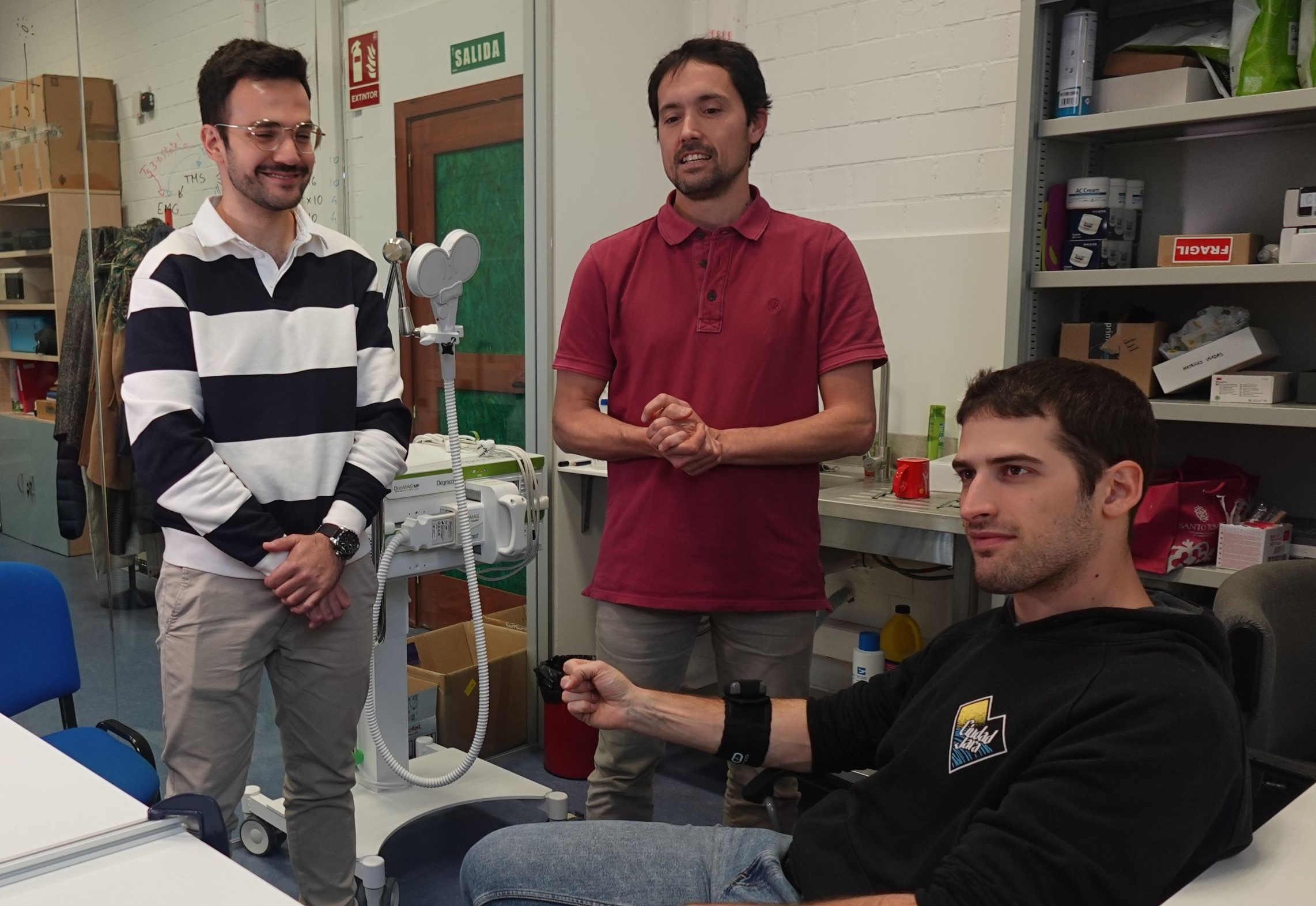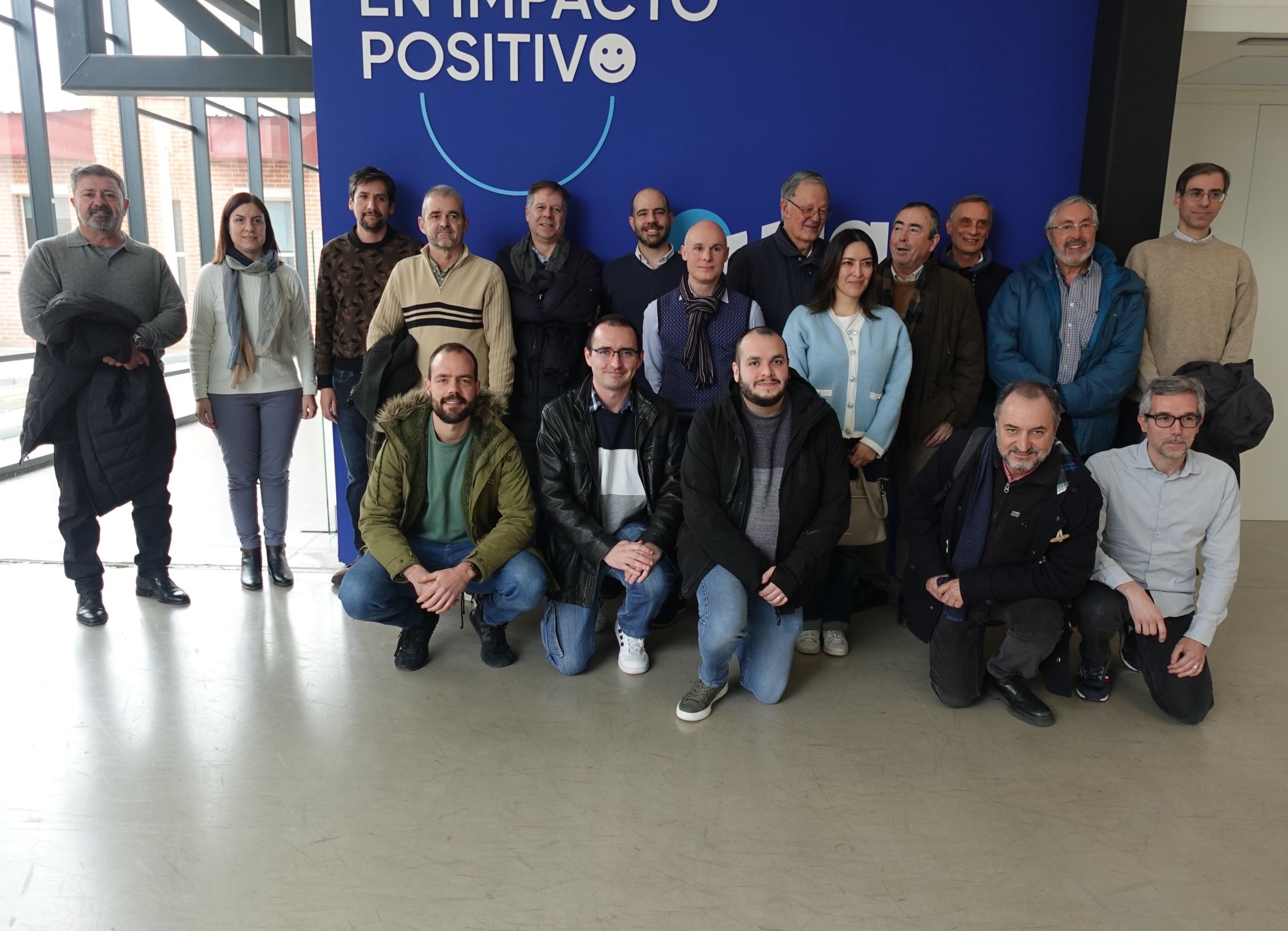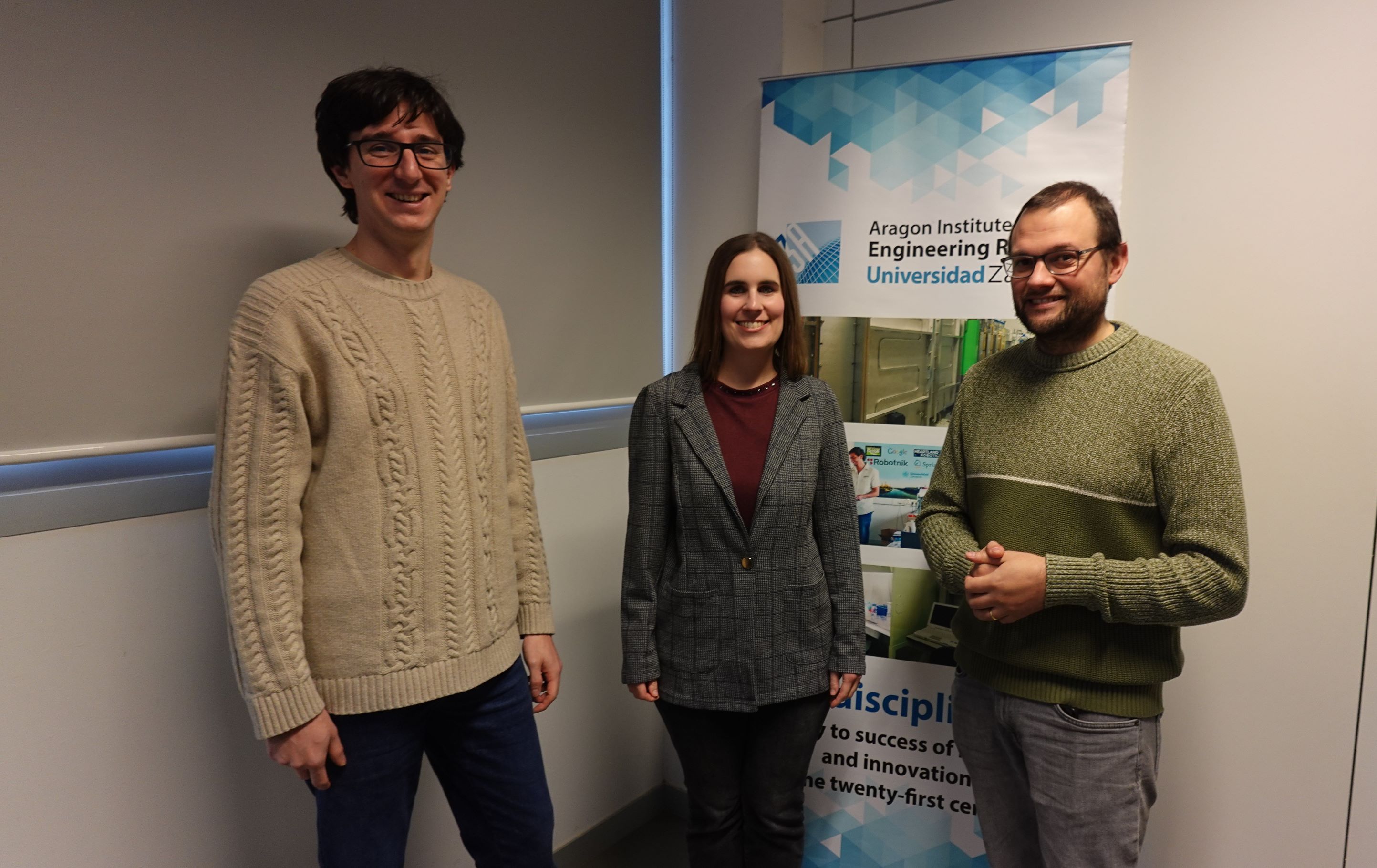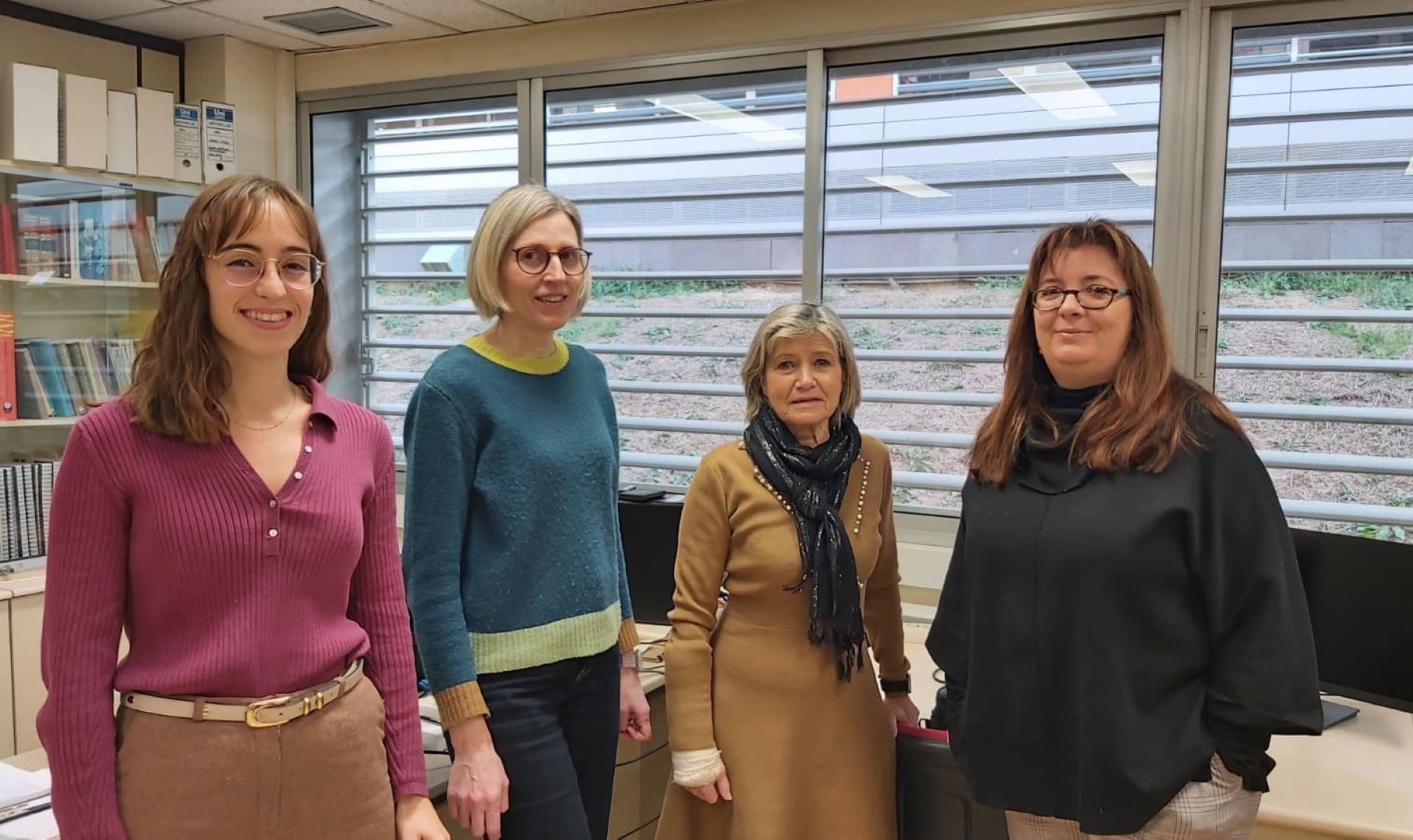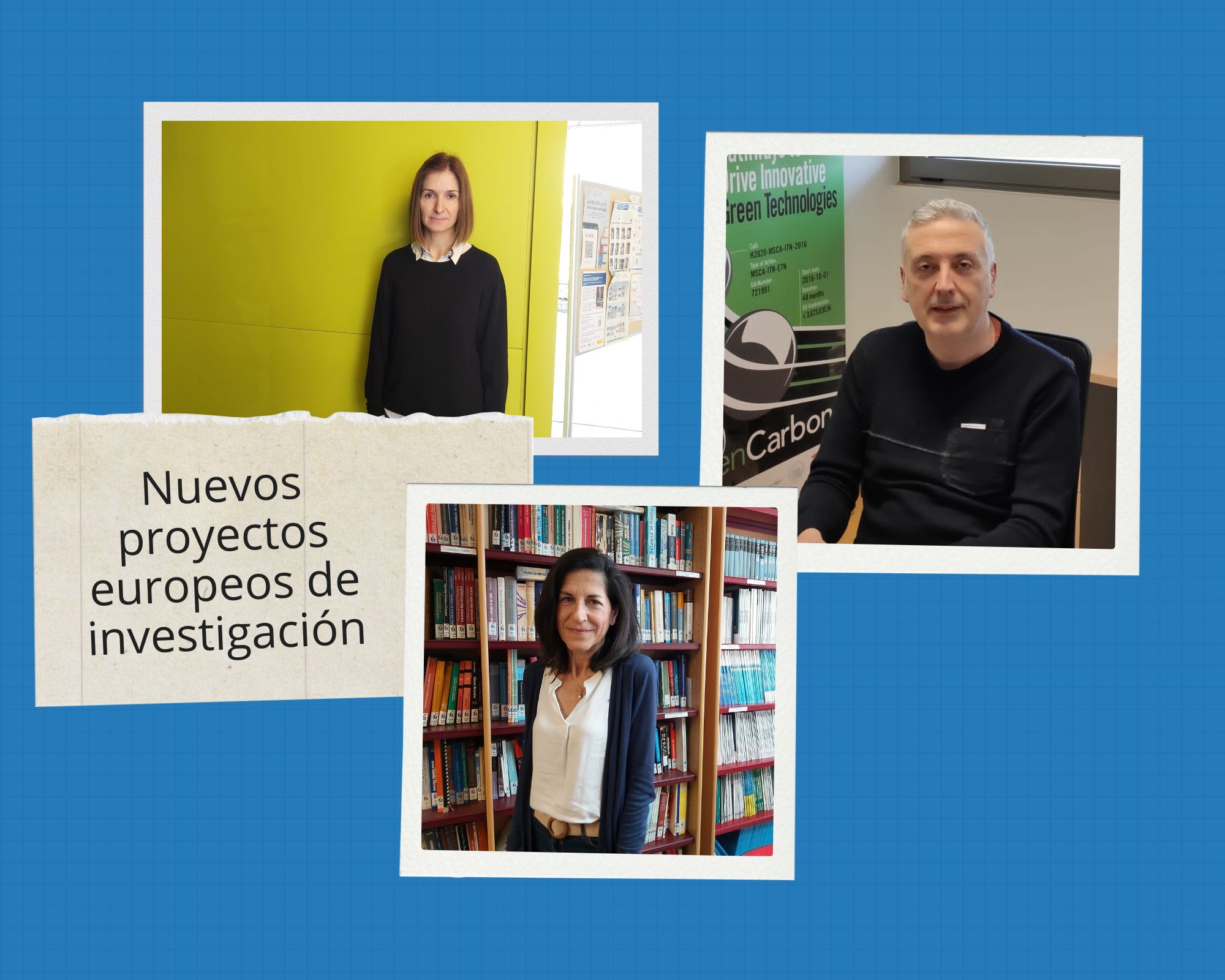
The European Commission (EC) has selected the projects of Joan Manyá, Pilar García and Esther Pueyo, I3A-Unizar researchers, to be developed in international consortia within the Marie Sklodowska Curie Actions (MSCA) - Doctoral Networks DN 2022, of the Horizon Europe Programme.
Three of the four projects received by the University of Zaragoza will be managed by the I3A research groups and, in addition, one of them will be led by the researcher Joan Manyá. Scientific proposals that will be developed at the I3A, as host institution, over the next three years on electrochemical energy storage, modelling of coastal flows with river and urban flooding and technologies to monitor the risks of atrial fibrillation.
These networks will make it possible to recruit four outstanding young researchers at Unizar over three years, who will receive excellent training.
The MSCA DN (Doctoral Networks) call seeks, through the funding of consortia projects, to train creative, innovative and resilient pre-doctoral research staff, able to address current and future challenges and to transform knowledge and ideas into products and services for economic and societal benefit. The creation of these networks will increase the attractiveness and excellence of doctoral training in Europe, equipping research staff with the right mix of scientific-technical and transferable skills.
The funded consortia will allow, in the framework of their implementation, the recruitment of pre-doctoral researchers, who will be able to defend their doctoral thesis in an excellent academic environment. Thanks to their multiple dimension of international, interdisciplinary and intersectoral mobility and innovation-oriented approach, they will achieve optimised career prospects in the academic and non-academic sectors.
The call had a budget of 429.4M€, of which the University of Zaragoza obtained 1M€. A total of 942 projects have been evaluated in this call, and 149 projects have been funded. It should be noted that 15 of them are led by Spanish institutions.
Joan Manyá (GPT research group)
The eNargiZinc project aims to generate new knowledge, technology and commercially viable products in the field of electrochemical energy storage. The uncertainty associated with the supply of critical raw materials (such as lithium, cobalt, graphite, etc.) puts at risk the mass deployment of rechargeable batteries, necessary to achieve decarbonisation goals. In this context, the project will explore the feasibility of new generation devices based on more sustainable, economical and locally available materials.
eNargiZinc will be articulated around ten PhD thesis projects, which will develop new electrodes and electrolytes (e.g. based on biomass-derived carbons and organic polymers with redox activity), as well as their integration into sodium-ion, zinc-ion and zinc-air batteries.
The consortium is made up of eight beneficiary entities (six from the EU and two from the UK), with the University of Zaragoza acting as coordinator. The expected start date of the project is January 2024.
Pilar García (TFD research group)
The Doctoral Network (MSCA-DN) RESCUER (Resilient Solutions for Coastal, Urban, Estuarine and Riverine Environments) aims to train 10 young researchers to address the challenges faced by coastal communities, focusing on forecasting and modelling coastal flows coupled with riverine and urban flooding and water quality issues. Advances in the numerical treatment of multi-scale and multi-physics problems made in the last decade will be exploited and incorporated into advanced simulation models. This will address pressing needs in the simulation of hydrodynamic phenomena in the coastal and estuarine zone.
The overall scientific novelty of this network is the multi-physics modelling of hydrodynamic processes and the combination with numerical and programming techniques that have matured in the last decade but are not yet widely used. This approach involves the use of high-precision numerical formulations developed for a variety of equations in the last decade, allowing a correct description of physical principles, such as conservation of energy and boundary conditions, as well as a parallel and optimised execution. This feature, together with a systematic use of GPU (Graphics Processing Unit) technology, which has now matured to the point where it is applicable to complex models, will enable real-time executions.
Esther Pueyo (BSiCoS research group)
The INSIDE-HEART project aims to develop innovative technologies to monitor the risks associated with atrial fibrillation, especially outside the clinical setting, and to facilitate early intervention when required. The funding will train 10 PhD students in the development of mathematical and computational tools to predict adverse events in patients with atrial fibrillation and propose effective preventive and personalised treatment methods.
The technologies to be developed in this project are based on signal and image processing algorithms, computational models and artificial intelligence tools. The aim is to obtain detailed characterisations of the electrical function of the heart in patients with atrial fibrillation, make individualised predictions about their potential risks and establish personalised therapies to improve their quality of life.
INSIDE-HEART has a global budget of 2.67M euros, of which 250,000 euros correspond to the University of Zaragoza. The network is coordinated by the Politecnico di Milano and involves five other Universities from Sweden, Italy, Israel, Finland and Spain, as well as nine other non-academic organisations including the companies Medtronic, Empática and Nuubo, the Centro Cardiológico Monzino and the Instituto de Investigación Sanitaria de Aragón.
The I3A values positively the excellent results obtained in this call for one of the most competitive doctoral programmes in Europe, for the international prestige it gives to the centre and for the possibilities it opens up for establishing new contact networks and for participation in other European projects.
Más información sobre los resultados publicados por la Comisión Europea el 16 de marzo 2023.
Información, Universidad de Zaragoza.
